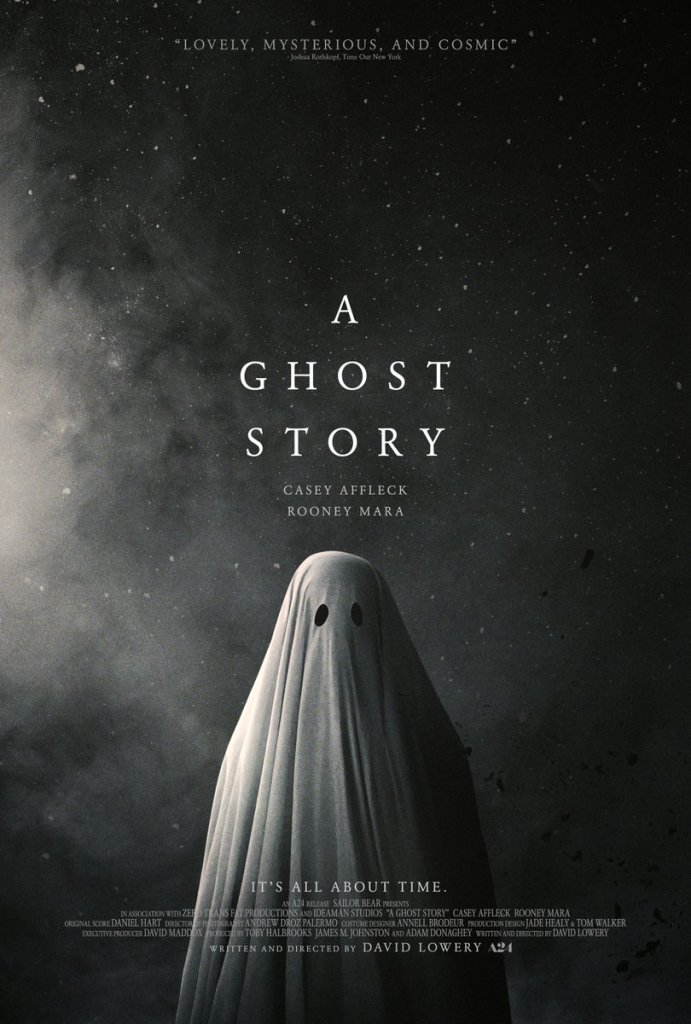
Director: David Lowery
Genre: Drama
Year: 2017
Apichatpong Weerasethakul, Kenneth Lonergan, Paolo Sorrentino, Michael Mann, Lynne Ramsay, Leos Carax, Lars Von Trier, Terrence Malick. Just some of contemporary cinema’s living humanists, individuals who can’t be more different in style, but infinitely bound together by their appreciation for what makes us who we are. From lamentations on mortality to stories of forgiveness and redemption, the binding element in the works of a great cineast is a soul; something categorically them.
Cue David Lowery, who burst into the scene with 2013’s AIN’T THEM BODIES SAINTS, only to follow it up with AAA blockbuster PETE’S DRAGON. The 36-year-old has now released his latest stripped-down work, A GHOST STORY, which debuted to critical acclaim at this year’s Sundance Film Festival, reinforcing the stigma that Park City has become the hub for overhyping competent filmmaking. See, when all’s said and done, Lowery’s film is one of arguably insipid plagiarism, trying to mark its territory in some post-ironic fashion. It’s not always bad; in fact, sometimes it’s great, but when it veers off track, it hits a pretentious wall like few films of its ilk.
Tracking the life and afterlife of a man whose untimely death ripples into every crevice of the home he last inhabited, A GHOST STORY is an echoing quandary on life and all its natural progressions. Much like A24’s previous export, IT COMES AT NIGHT, it inverts its horror formula by telling us a haunted house tale from the perspective of its ethereal presence (THE OTHERS sends its greetings). Take a second and watch Lowery’s PIONEER, a beautiful short that acts as a perfect companion piece to A GHOST STORY. In fact, I’d go as far as to call A GHOST STORY a visually-driven remake of the same film.
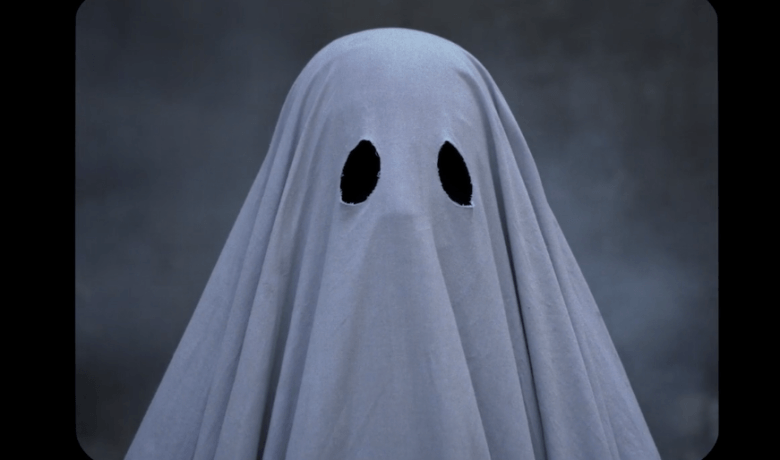
Pictured: Emotional Tapestry
It is a work of simplicities, gerry-rigged and using in-camera effects akin to a high school A/V club project. It’s deftly inventive in its problem-solving, bypassing any expensive visual gimmickry, and yet never elevates itself to the stature of those aforementioned auteurs. You see, A GHOST STORY is touching, and initially deeply human, but with time, it forgets its sensuality, falling victim to its own self-serious importance. It’s a film so intent on its message that it’s arguably working against its own interests.
The reason I say this is because A GHOST STORY is a hauntingly quiet film; think THE TURIN HORSE on a brighter summer day. It moves with the momentum of a derelict ship, letting the wind carry it through time and space. So naturally, when words are spoken, Lowery’s stakes are considerably raised. Lines delivered by lead actors Rooney Mara and Casey Affleck are whisked away into the hushed sound design of Lowery’s film, so when words get loud, they ought to mean something.
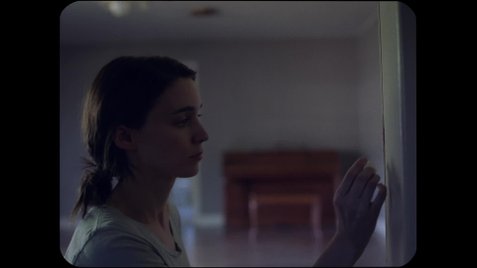
Shot entirely on Instagram
And surely they do. Near the halfway mark, A GHOST STORY gets its most important series of line deliveries; all uttered by a drunken party guest in the home of our eponymous spirit. It’s to Lowery’s film what the Nietzschean soliloquy is to THE TURIN HORSE. In simplest terms, the scene discusses mankind’s lasting impact on one another through time, utilizing Ludwig Van Beethoven’s “Ode To Joy” as an example for salvaging dignity long after war and famine has driven us apart. It then goes on to claim that it doesn’t matter because we’ll eventually be enveloped by the sun.
It’s an inebriated, confused speech, and fails to illuminate the viewer of Lowery’s intentions. Does A GHOST STORY posture itself as a work that can forever change the course of history? Is this the prophesied legacy that Lowery will bestow upon the earth? It feels arrogantly self-serious despite tip-toeing in a realm of earnest quirkiness. It’s all really unbecoming of the film. From the monologue on, every scene feels tarnished by this intention to postulate a higher purpose. It’s here where A GHOST STORY stops being about humanism entirely. Lowery can be as poetic as he wants, but he renders his film cinenarratively dissonant the moment his style doesn’t match his existential philosophy.
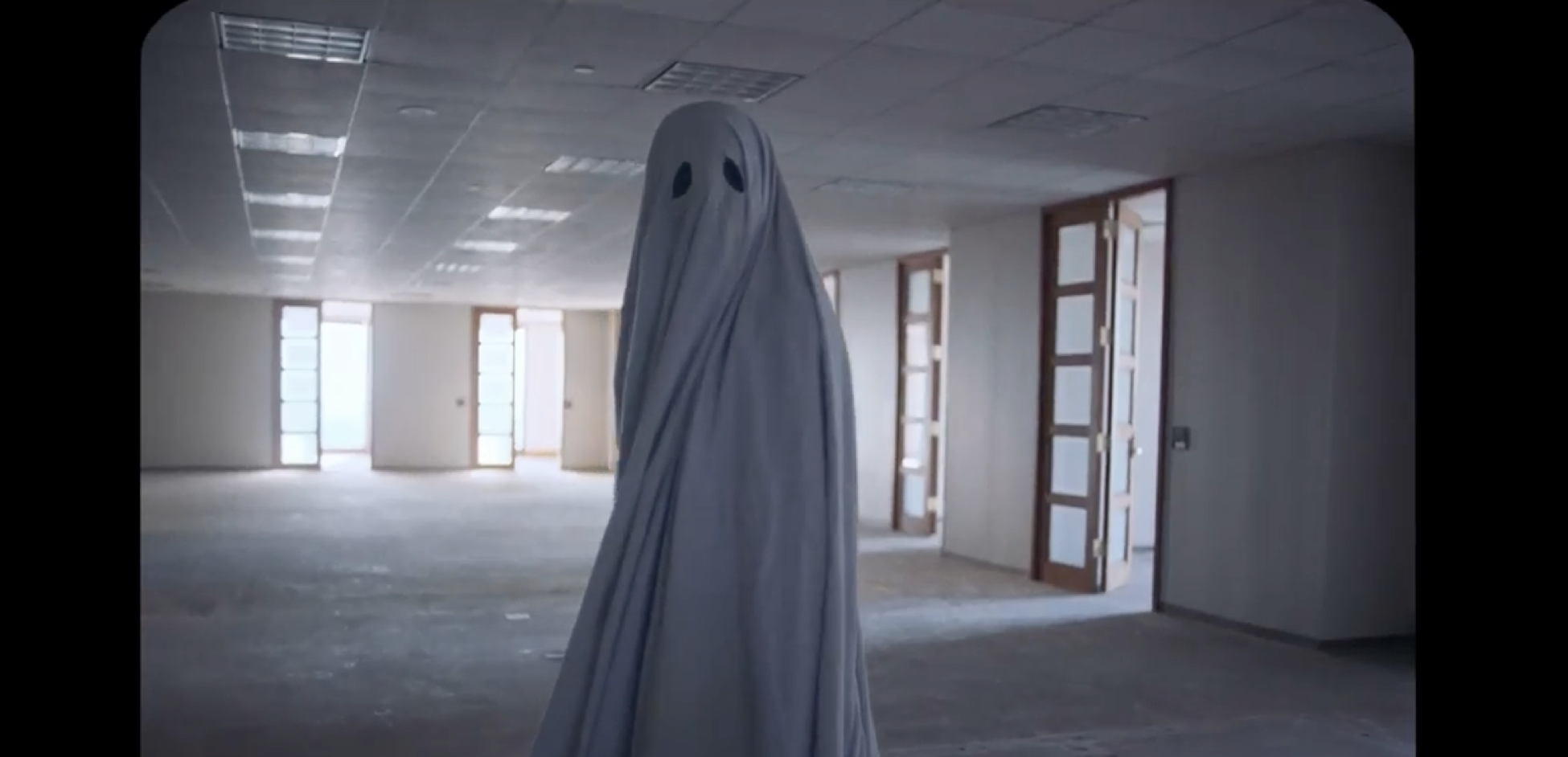
LED ZEPPELIN’s “Doorways to Heaven”
And still, there’s something to be said about Lowery’s accomplishments. Watching Rooney Mara eat an entire pie for what feels like an eternity can be perceived as a clever means of defining a character’s grieving process—though I find it to be a tad reductive, the type of idea a filmmaker gets because they’ve seen women eat ice cream in films time and time again and thought to themselves, “Hey, why not show them eat the whole darn thing?”—but what excites me much more is the way Lowery (for a brief 20 minutes) conducts the most fascinating experiment of the Kuleshov effect I’ve seen in years.
You see, A GHOST STORY really begins to excite me when Mara says absolutely nothing to the corpse of her deceased boyfriend. To me, this is the entire reason the spirit has yet to transition to its afterlife. Watching him roam around the house, nothing more than a flat, inanimate figure, we try our best to deduce his emotions through music and composition. How he feels about Mara’s grief is the film’s most compelling aside. It’s because of this that A GHOST STORY loses considerable steam once Mara is virtually out of the picture, but the process of finding closure by having her tell him something, anything, is unbelievably touching.
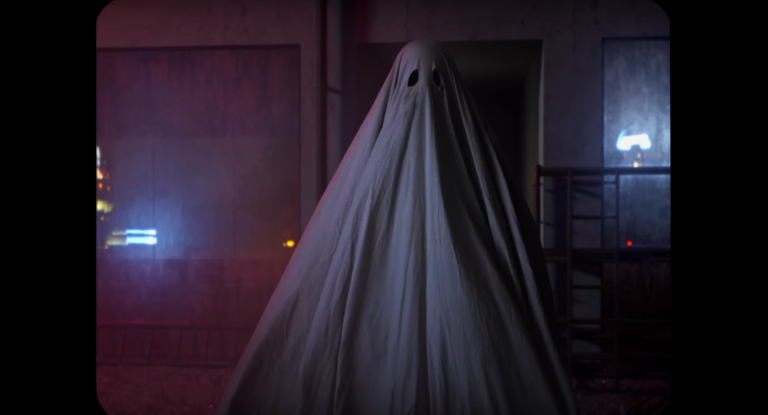
Scarlett Johansson in GHOST IN THE SHEET
It’s hard to recommend A GHOST STORY to anyone in particular, and still I’d never write it off entirely. It’s too juvenile in its assumed trendiness to play into the cards of arthouse cinephiles, and far too committed to its slow cinema stylings to appeal to anybody else. And despite all this, that isn’t to say that people wouldn’t be touched by the film. Despite all of its pitfalls as a self-serious postulation on fleeting memories, history, and time, Lowery has crafted a film that does feel resolutely his own. It might lack the sensuality or humanism to leave the legacy it so clearly wants to, but it has opened the door for a filmmaker who stands to grow from here on out. For what it’s worth, Lowery is probably the only director who would go so far as to work with an Oscar winner and make him wear a sheet for 80% of the film; bravo, chum!
Verdict: Do Not Recommend
